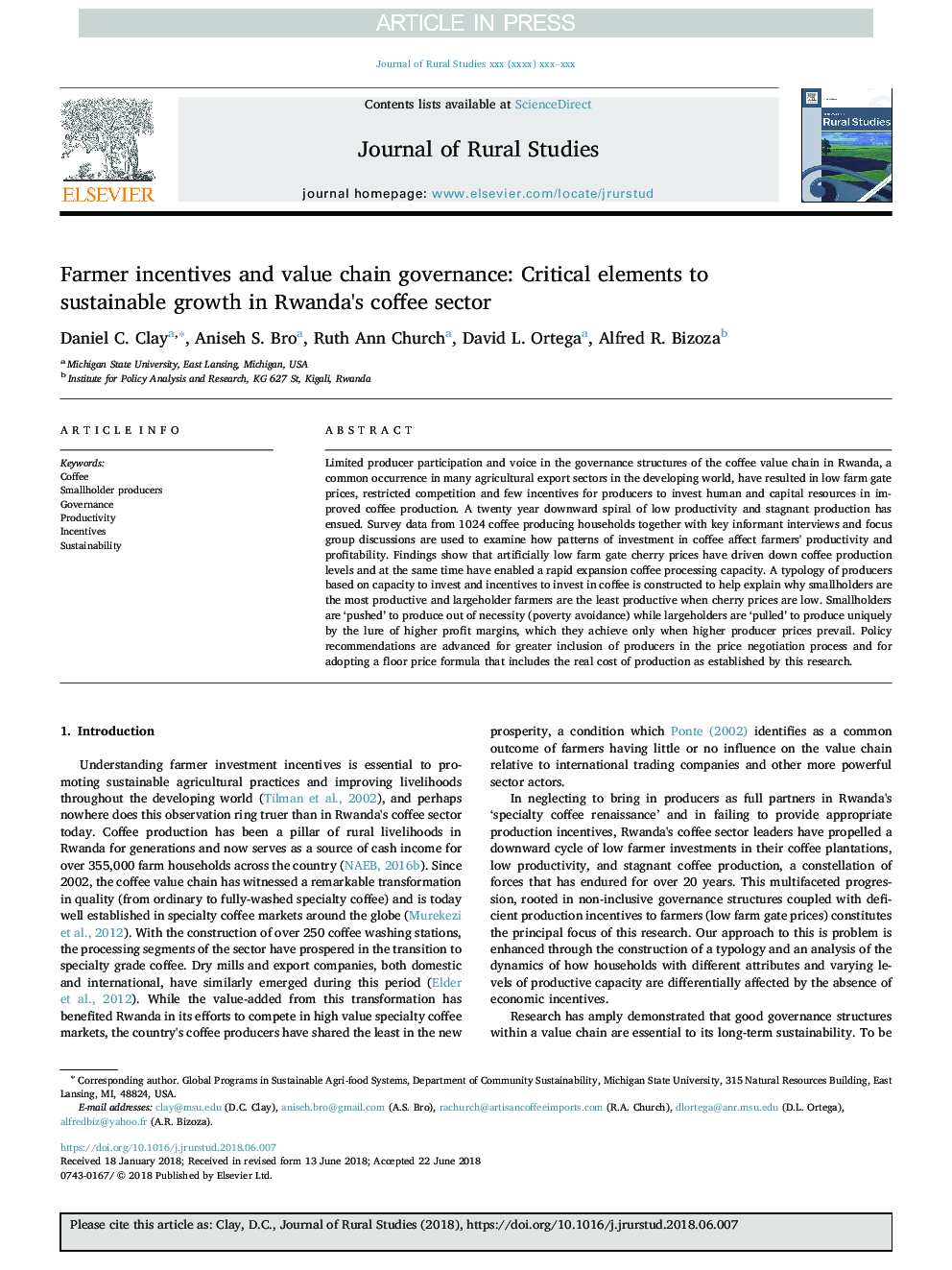| Article ID | Journal | Published Year | Pages | File Type |
|---|---|---|---|---|
| 11032571 | Journal of Rural Studies | 2018 | 14 Pages |
Abstract
Limited producer participation and voice in the governance structures of the coffee value chain in Rwanda, a common occurrence in many agricultural export sectors in the developing world, have resulted in low farm gate prices, restricted competition and few incentives for producers to invest human and capital resources in improved coffee production. A twenty year downward spiral of low productivity and stagnant production has ensued. Survey data from 1024 coffee producing households together with key informant interviews and focus group discussions are used to examine how patterns of investment in coffee affect farmers' productivity and profitability. Findings show that artificially low farm gate cherry prices have driven down coffee production levels and at the same time have enabled a rapid expansion coffee processing capacity. A typology of producers based on capacity to invest and incentives to invest in coffee is constructed to help explain why smallholders are the most productive and largeholder farmers are the least productive when cherry prices are low. Smallholders are 'pushed' to produce out of necessity (poverty avoidance) while largeholders are 'pulled' to produce uniquely by the lure of higher profit margins, which they achieve only when higher producer prices prevail. Policy recommendations are advanced for greater inclusion of producers in the price negotiation process and for adopting a floor price formula that includes the real cost of production as established by this research.
Related Topics
Life Sciences
Agricultural and Biological Sciences
Forestry
Authors
Daniel C. Clay, Aniseh S. Bro, Ruth Ann Church, David L. Ortega, Alfred R. Bizoza,
